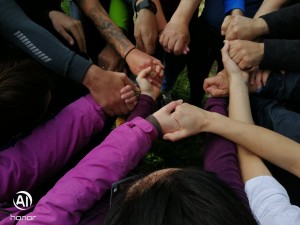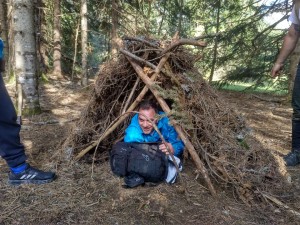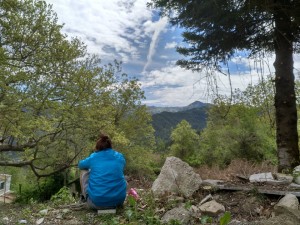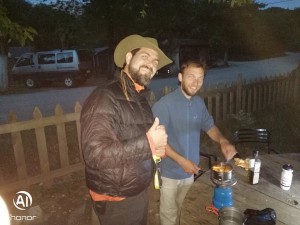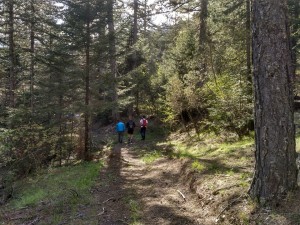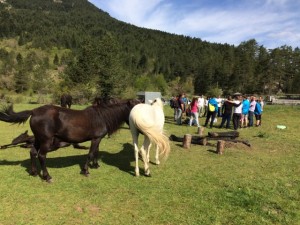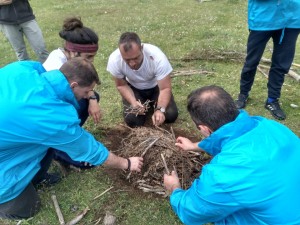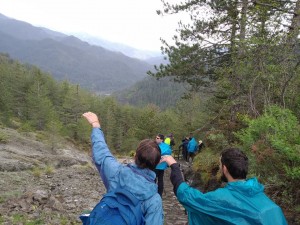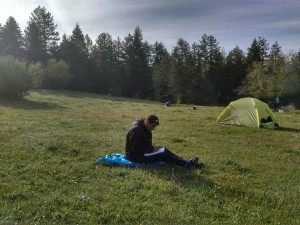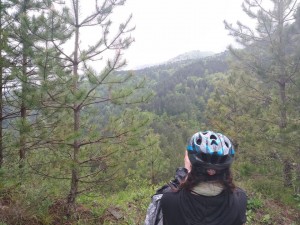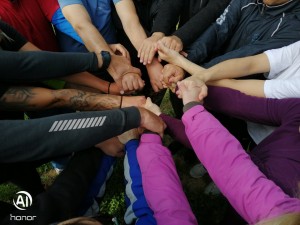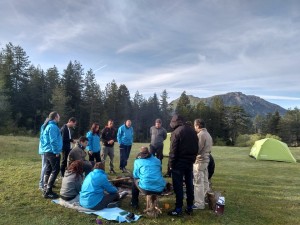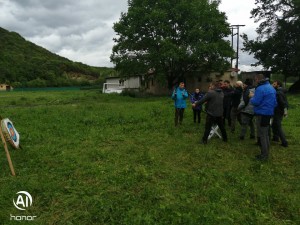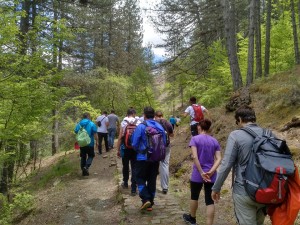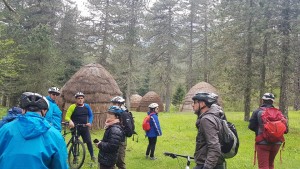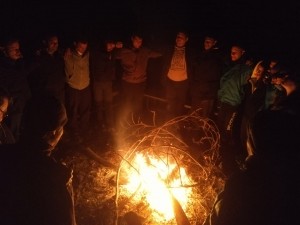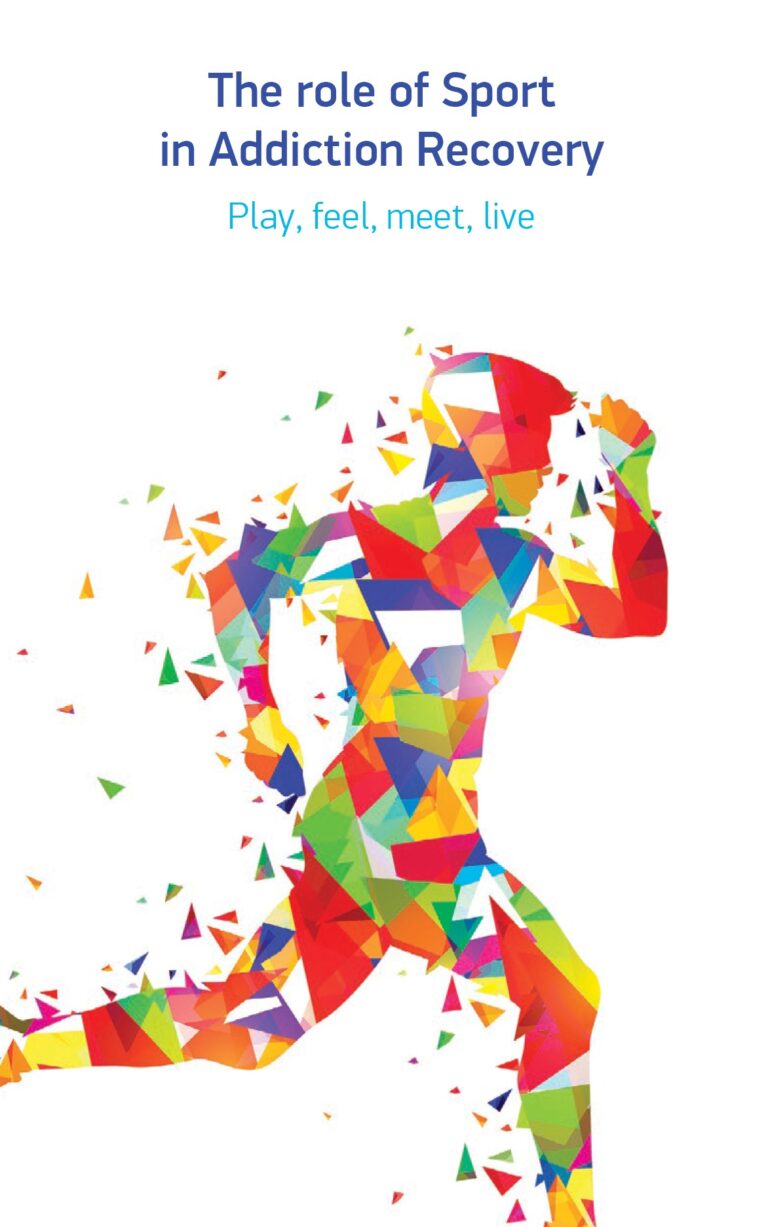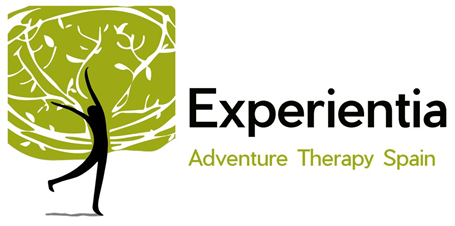The Pilot Implementation has been designed by Asociación Experientia in order to implement an adventure-based therapy program for patients in rehabilitation for substance abuse from KETHEA, Greece. The design and implementation of this pilot aim to develop a supportive tool to provide adventure-based interventions.
The purpose of the pilot implementation of the training tool was to pilot on a limited scale in a sample of the target groups in order to be a vehicle for changes and improvements aiming to introduce the Adventure Therapy methodology in addiction treatment and highlight the benefits of nature and outdoor sports activities. The pilot implementation of the Adventure Therapy methodology in the addiction treatment process was conducted in KETHEA, with the participation of 14 KETHEA Therapeutic Program members and 11 counselors in a 5 days Adventure Therapy program in Greece. Overall, results indicated increased positive intrapersonal and interpersonal outcomes through the program, providing further support for the effectiveness of adventure therapy methodology in addiction counseling.
In the pilot implementation, the facilitator team used adventure experiences to help achieve the client’s therapeutic goals, in a 5-day adventure trip in nature. The experiences were client-oriented and connected with planned activities and goals. Clients were relating the experience to their treatment process and goals through discussion with the facilitators and their peers. The experiences had involved the clients directly, and through reflection progress, help them to make the experience concrete and relevant to their treatment plan.
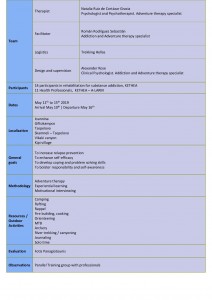
Goals and content
- General goals
- To increase relapse prevention
- To enhance self-efficacy
- To develop coping and problem-solving skills
- To bolster responsibility and self-awareness
Specific Goals
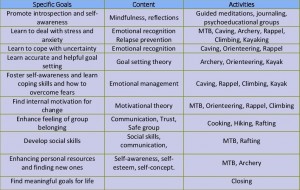
Ways to achieve the goals
- increase participants sense of personal confidence
- increase mutual support within a group
- develop an increased level of agility and physical coordination
- develop an increased joy in one’s physical self and in being with others
- develop an increased familiarity and identification with the natural world
- The learning outcomes must be clear
- The learning experiences must be designed to help clients achieve those learning outcomes.
- The assessment tasks must allow the clients to demonstrate their achievement of those learning outcomes.

Activities
Activities | Potential goals |
| Guided meditations | Promote introspection and self-awareness |
| Journaling | Promote introspection and self-awareness
Find internal motivation for change |
| Psychoeducational groups | Promote introspection and self-awareness
Learn accurate and helpful goal setting Enhance the feeling of group belonging |
| Cooking | Develop social skills
Enhance feeling of group belonging |
| Hiking | Develop social skills
Learn accurate and helpful goal setting Enhance feeling of group belonging |
| MTB | Develop social skills
Find internal motivation for change Enhance feeling of group belonging |
| Caving | Learn to deal with stress and anxiety
Learn to cope with uncertainty |
| Orienteering | Learn to deal with stress and anxiety
Learn accurate and helpful goal setting Find internal motivation for change |
| Rappel | Learn to deal with stress and anxiety
Learn to cope with uncertainty |
| Climbing | Learn to deal with stress and anxiety
Learn accurate and helpful goal setting Find internal motivation for change |
| Canyoning | Learn to deal with stress and anxiety
Learn to cope with uncertainty |
| Archery | Learn to deal with stress and anxiety
Learn to cope with uncertainty Learn accurate and helpful goal setting |
| Rafting | Develop social skills
Learn to deal with stress and anxiety Learn accurate and helpful goal setting Enhance feeling of group belonging |
| Kayak | Learn to deal with stress and anxiety
Learn to cope with uncertainty |
Implementation
Preparation Staff meeting
- Send beforehand the program description to logistics and support facilitators
- Review programme and questions
Expectations and roles:
Facilitators:
- To facilitate the programme and activities as well as the processing and transference
- To ensure an emotionally safe space
- To provide participants with opportunities to fulfill the goals of the programme
Support co-facilitator:
- To provide support during the activities
- To pay attention to individual needs within the group during the activities
- To help in the transference process when having previous knowledge about participants.
Logistics:
- To ensure physical safety
- To provide all logistics and materials necessary to develop the programme
Expectations: Each professional might talk about their own personal goals and expectations for the programme. It is essential to create a safe space among professionals too in order to perform adequately and support participants.
Communication procedures:
Safety procedures: Any activity might be ended or modify by demand in order to meet safety at all times.
- Trekking Hellas: Physical safety
- Facilitators: Emotional safety
Participants review: Professionals will provide relevant information about participants in order to tailor the intervention and to consider specific aspects of each participant.
PHOTO
